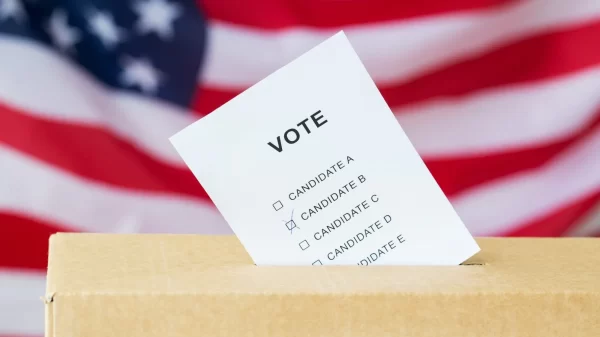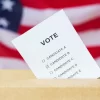By Bill Britt
Alabama Political Reporter
MONTGOMERY—In December 2010 the newly minted GOP supermajority went into special session to enact sweeping changes to Alabama’s ethics laws.
In what was described by then Governor Bob Riley as, “Alabama’s political system underwent more historic change and more reform during the seven-day special session that just concluded than we’ve ever seen before. Because of these landmark reforms, state and local governments in Alabama will operate more honestly, more openly and with more accountability.”
But did it really or was there more hope and hype than change?
Whatever the positive results of the reforms of 2010, two years later that question seems to be answered with an emphatic no when it comes to campaign finance reform.
Only a few months after his proclamation of sweeping changes in ethics laws Riley, other GOP leaders as well as Democrats would be caught up in a grand jury investigation that would test the new laws.
The eight month grand jury investigation that followed did not return a single bill of indictment.
However, a summary of the grand jury report delivered to Attorney General Luther Strange found that there was no means by which to prosecute anyone under the newly-enacted Republican-sponsored laws.
Ellen Brooks, Montgomery County District Attorney is the court officer that wrote the grand jury report and her findings should have sent shockwaves through the judiciary and the legislature but only a small fraction of lawmakers even became aware of the egregious holes Brooks found within the so-called reforms.
Brooks, a democrat, who cut her legal teeth as Director for the White Collar Crime Unit at Montgomery County District Attorney’s Office starting in 1981 has a no-nonsense approach when it comes to the law.
“Statewide campaigns can attracted a lot of money from all over the country, I am afraid that some people are not careful to know where that money comes from, is it a PAC, an individual, etc?” says Brooks. “They put it in the bank and spend it, then they worry about the details.”
She says that the new laws allow for this type of lax behavior because, “there is very little accountability in the law. There is not even a clear definition of who can be prosecuted under the law.”
According to Brooks under current law concerning PACs there are no clear definitions of who can be prosecuted if a crime is suspected, “We don’t know who that is, the chairman, the secretary, the person who signs the form, we don’t know, the law is unclear.”
With no one to hold accountable it is impossible to take action against law breakers. This is especially true concerning out of state PACs, which seem to have unlimited powers under the new laws.
She does say that with regards to the complaints that were heard by the Montgomery grand jury that, “First of all you have to look at the different complaints, but they primarily had to do with PAC-to-PAC transfer, a few days after the law was enacted.”
She believes because the law “went into effect rather quickly, so that some people did not have time to think it through what they were doing.” There seems to have been some misunderstanding of “what was the effective date and did they give enough notice to people?”
“I think some of these PACs were franticly trying to move money,” said Brooks, “and as fate would have it money does not always move very rapidly. Checks have to be written, checks have to be sign, check have to be deposited.”
While she does not use this as an excuse to disobey the law she did feel it was important to understand the timing in this particular instance.
But she also points out that the under the new law covering PAC-to-PAC transfers, that it would seem that, “It is not a crime for a PAC to solicit or receive an illegal contribution, such as from another PAC.”
Brooks says that another area of serious concern is when an illegal contribution may be returned, or even if it should be possible to do so.
“Let’s say, I get a contribution, I don’t really look at it, but, I deposit it in the bank and then a week, a month, six months later I go, oh no, I don’t want that money. So, I send it back. The law is unclear on how long if any time a campaign can keep an illegal campaign contribution.” Brooks points out that under that scenario it is impossible to make a case that a law has been broken.
Using another example Brooks says, “It’s kind of like walking into a bank and robbing it and then walking outside and saying, oh, I changed my mind.” She notes without irony that this is in fact what many campaign do with impunity.
“We all know a bank robber can’t do that but under this law it would seem a person can change their mind at any time to escape accountability.”
This Gordian knot of reform seems to at once play to the idea of change without giving law enforcement any real way of taking action against criminals.
Another troubling loophole in the law, says Brooks, has to do with campaigns paying family members like “a child or a spouse’s for work during the campaign.”
She says this is another grey area in the law and should “cause one to wonder at what is legal and what is a payoff.”
During the 2012 legislative session Senator Arthur Orr (R-Decatur) had sought to craft legislation to address some of the holes in the reform laws. But it was decides that a study committee was needed to address the issue, Ellen Brooks has been appointed to that committee. Others will be, Governor’s Appointee (R. Cooper Shattuck), Secretary of State’s Appointee; Julie Sinclair, Attorney General’s Designee, Andrew Brasher; Speaker Appointees, Rep. Mike Ball, Rep. Lynn Greer, and Rep. Charles Newton; Pro Tem Appointees, Sen. Bryan Taylor; Sen. Arthur Orr; Sen. J. T. “Jabo” Waggoner; Probate Judge Association Appointee, Judge Bill English (Lee County); Alabama District Attorney’s Association Representative (to be appointed); District Attorney of the 15th Judicial Circuit Designee, Daryl Bailey; Alabama Bar’s Representative, Greg Butrus. There are still anointments to be made and no formal date has been set for meetings.
Even with the Siegelman and bingo trials in the rearview mirror, it would seem most voters and many republicans and democrats in the state legislature seem to be unaware of the loopholes in the campaign finances laws.
While the GOP has been quick to say that the ambiguities in the new laws are unintentional, it is also clear that no urgency was proclaimed in the two legislative session since the “sweeping reforms” were enacted.
Somewhere, inshrined in the idea of transparency there should be the concept of accountability not just when voters are looking but more often when they are not.





















































